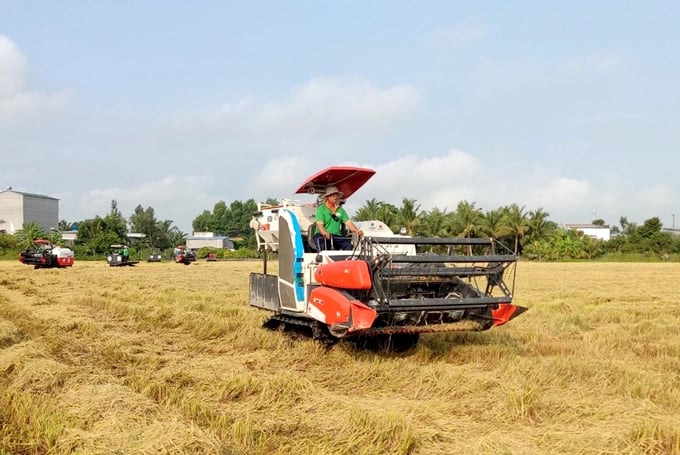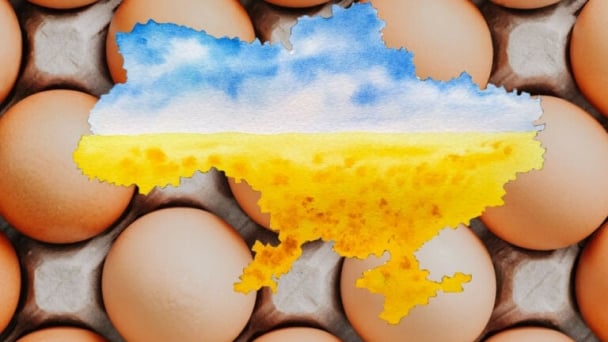May 21, 2025 | 07:56 GMT +7
May 21, 2025 | 07:56 GMT +7
Hotline: 0913.378.918
May 21, 2025 | 07:56 GMT +7
Hotline: 0913.378.918

Rice is one of Vietnam's strong agricultural products when exported to the Middle East - Africa.
According to Nguyen Minh Phuong, Head of the West Asia - Africa Department, Asia - Africa Market Department, Ministry of Industry and Trade, the total trade turnover of Halal food of member countries of the Organization of Islamic Cooperation (OIC) reached nearly USD 445 billion, of which, the export turnover of food to the OIC was nearly USD 180 billion.
Middle Eastern - African countries are accounting for most of the total trade value of Halal products globally. The Middle East currently has a total population of nearly 600 million people, the majority of whom are Muslims. Due to unfavorable agricultural production conditions, this region depends on food imports. The development of the tourism industry in the Middle East has also created a lot of demand for Halal food.
Most of the food demand in the North African region also depends on imports. This region is experiencing increased per capita income and increasingly improved education levels.
In the sub-Saharan region, where Muslims account for about 30% of the population, purchasing power is still low due to low income. Still, there is great potential because the majority of Muslims will continue to have demand for Halal food.
Nguyen Minh Phuong said that Vietnam's Halal product exports to the Middle East - Africa in 2024 are estimated to reach nearly USD 700 million, of which exports to the UAE, Saudi Arabia, and Egypt account for the most significant proportion.
About 50% of Vietnam's rice exports to the Middle East and Africa are Halal products. Halal seafood, agricultural products, and processed foods also account for 30-35% of Vietnam's total food export turnover to this region.
Phuong commented that in the Halal market, Vietnam has strengths in agricultural products (rice, pepper, cashew, coffee, and coconut products), processed foods (poultry, beef, milk), and seafood (pangasius, shrimp, and processed seafood products).
However, to export Halal products to the Middle East - Africa, Vietnam is facing difficulties when competing with many countries such as Malaysia, Indonesia, and Thailand... which have experience and reputation in exporting Halal products. Vietnamese enterprises will have to face fierce competition from rivals with brand and long-standing presence advantages.
To do business successfully in the UAE market, Vietnamese enterprises need to correctly understand the religion, language, and business culture of Arabs, grasp the tastes and sensitive issues of religion and consumer culture, and meet specific standards on product packaging and advertising.
Consumer culture in the Middle East and Africa differs greatly from Vietnam in terms of how products are consumed, taste preferences, packaging, and product promotion methods. Logistics challenges such as long shipping times, high transportation costs, and uneven infrastructure in African countries can make it difficult for businesses to maintain a stable supply chain.
Therefore, to export Halal products to the Middle East - Africa, Ms. Phuong believes that businesses need to carefully study the above factors to adjust their marketing and product strategies accordingly. In particular, analyzing and assessing risks before expanding the market is very necessary.
Also, businesses need to take advantage of trade promotion activities through international fairs, exhibitions, or trade missions organized by the Government or industry associations. Building relationships with local partners and importers is essential in effectively penetrating the market.
According to Le Chau Hai Vu, Director of Consultech Business Consulting Company, businesses must pay attention to tariffs when exporting to the Middle East. In the UAE, tariffs are constantly revised, so businesses should check these contents before exporting. In particular, companies should not transact with partners requiring Vietnamese businesses to transfer brokerage, lawyer, or contract approval fees in advance to avoid unfortunate losses.
In recent years, Halal market has become familiar to many Vietnamese businesses.
Halal products include almost all essential life products, such as food, beverages, organic foods, functional foods, pharmaceuticals, cosmetics, textiles, and handicrafts, and service sectors such as banking, tourism, security, education and training, catering services, hotels, and logistics.
The Halal product consumption market is distributed worldwide, from Muslim to non-Muslim countries, from developed to developing economies, because Halal products meet many criteria on food hygiene and safety, ensuring health, quality, green, clean, ethical processing and contributing to environmental protection...
To penetrate deeply and expand market share in the Halal market, businesses must be proactive and take steps to prepare from the beginning to achieve Halal certification, significantly improving product quality.
Translated by Huong Giang

(VAN) Oliyar, a prominent Ukrainian oil and fat manufacturer, has revealed plans to build a farm for 2.3 million laying hens in the Lviv region. The additional production quantities promise to change the competitive landscape of the egg market of the Eastern Europe region.

(VAN) On May 15, Ministry of Agriculture and Environment of Vietnam hosted the 'Connecting Vietnam - Germany agricultural, forestry and fishery trade' seminar in Berlin, Germany.

(VAN) In the face of counterfeit and imitation products, Khanh Hoa Salanganes Nest Company hopes for the prompt completion of the legal framework, strict enforcement against violations, and protection of the bird’s nest brand.

(VAN) Japan's efforts to lower the price of rice through the release of its stockpile may finally be making some progress, albeit at a snail's pace.

(VAN) U.S. tariffs are not only a 'shock', but also an opportunity for Vietnamese businesses to renew their mindset toward comprehensive development.

(VAN) As Bac Giang lychee enters the harvest season, Minister Do Duc Duy expects that the fruit will contribute greatly to agricultural exports due to standardized production and deep processing.

(VAN) Consumers have shown a preference for free-range eggs, but those farming systems are more vulnerable to biosecurity risks like bird flu.